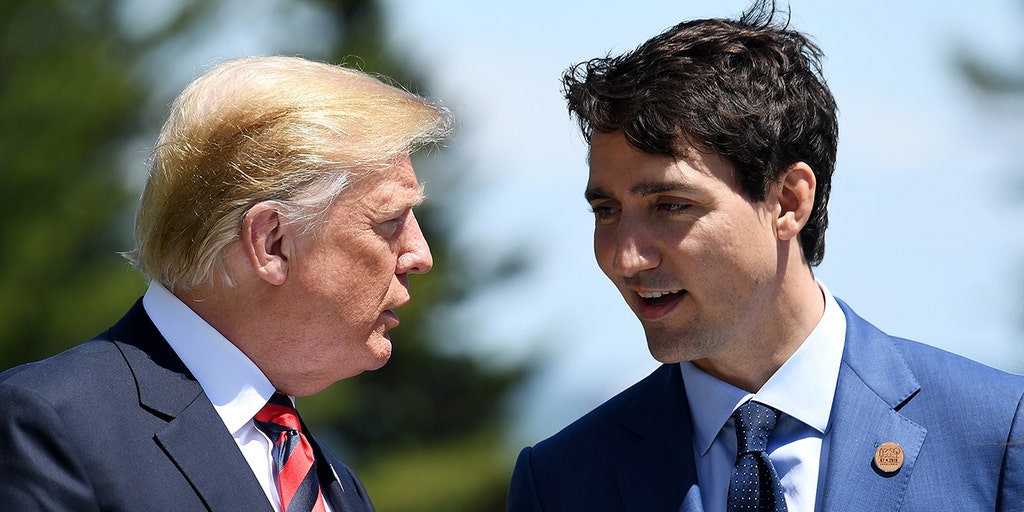Strategic Squeeze: China Weaponizes Rare Earth Exports in Trump Tariff Showdown
Business
2025-04-14 10:35:05Content

In a strategic move that could significantly impact global technology and electric vehicle industries, China has imposed new restrictions on the export of rare earth minerals. These critical materials, essential for manufacturing electric motors and high-tech components, have become a key battleground in the ongoing economic tensions between China and the United States.
The export limitations come as a direct response to recent trade actions by the United States, specifically President Donald Trump's implementation of hefty 145 percent tariffs on Chinese goods. By controlling the flow of these precious minerals, China is leveraging its dominant position in the global rare earth market, where it currently produces over 80% of the world's supply.
Rare earth minerals are fundamental to numerous cutting-edge technologies, including smartphones, wind turbines, and electric vehicle batteries. This latest export restriction could potentially disrupt supply chains worldwide and escalate the ongoing trade confrontation between the two economic superpowers.
Analysts suggest this move demonstrates China's willingness to use its strategic resources as a diplomatic and economic tool, sending a clear message about its economic influence and technological leverage in the global marketplace.
Global Tech Tremors: China's Strategic Rare Earth Export Clampdown Shakes Economic Foundations
In an unprecedented geopolitical chess move, China has strategically deployed its rare earth mineral export restrictions, sending shockwaves through global technology and manufacturing supply chains. This calculated maneuver emerges as a direct response to escalating trade tensions, signaling a profound shift in international economic dynamics that could potentially reshape technological innovation and industrial production landscapes.Navigating the High-Stakes Mineral Monopoly: A Technological Battleground Unfolds
The Rare Earth Mineral Ecosystem: Understanding Strategic Significance
Rare earth minerals represent a critical technological linchpin, serving as fundamental components in advanced electronic systems, renewable energy technologies, and sophisticated manufacturing processes. These seventeen metallic elements, often overlooked by casual observers, constitute the backbone of modern technological infrastructure. Their unique electromagnetic and chemical properties enable breakthrough innovations across multiple industries, from smartphone production to electric vehicle manufacturing and advanced defense systems. The geopolitical significance of rare earth minerals extends far beyond mere economic transactions. China's dominant position in global rare earth mineral production—controlling approximately 80% of global supply—transforms these seemingly mundane elements into powerful strategic assets. By strategically restricting export channels, Beijing can exert substantial economic pressure and influence technological development trajectories worldwide.Technological Supply Chain Disruption: Implications and Potential Consequences
The export restrictions imposed by China represent more than a simple trade barrier; they constitute a sophisticated economic weapon with potentially transformative global implications. Manufacturers worldwide, particularly in high-tech and renewable energy sectors, now face unprecedented challenges in securing critical mineral resources essential for continued innovation and production. Electric vehicle manufacturers, semiconductor producers, and advanced electronics companies will likely experience significant supply chain disruptions. The scarcity of these minerals could potentially inflate production costs, delay technological advancements, and force companies to explore alternative sourcing strategies or develop innovative substitute technologies.Geopolitical Tensions and Economic Recalibration
The current export restrictions emerge against a backdrop of escalating trade tensions between China and the United States. President Donald Trump's aggressive tariff policies have precipitated a complex economic confrontation, with rare earth minerals becoming a critical battleground in this intricate geopolitical landscape. By leveraging its near-monopolistic control over rare earth mineral production, China demonstrates a nuanced understanding of global economic interdependencies. The strategic export limitations serve multiple objectives: retaliating against punitive tariffs, signaling technological sovereignty, and potentially compelling international negotiations.Global Response and Potential Mitigation Strategies
Confronted with China's strategic maneuver, international stakeholders are compelled to develop comprehensive contingency plans. Potential strategies include diversifying mineral sourcing, investing in domestic extraction capabilities, accelerating recycling technologies, and exploring alternative material innovations. Countries like Australia, Canada, and the United States are increasingly exploring domestic rare earth mineral extraction and processing capabilities. These efforts represent not just economic initiatives but critical national security strategies designed to reduce dependence on potentially volatile international supply chains.Future Technological Landscape: Adaptation and Innovation
The current rare earth mineral export restrictions may ultimately catalyze unprecedented technological innovation. Faced with potential resource constraints, global manufacturers and research institutions are likely to intensify efforts toward developing alternative technologies, more efficient material utilization, and breakthrough manufacturing processes. This challenging environment could paradoxically stimulate remarkable technological advancements, potentially transforming current limitations into opportunities for groundbreaking scientific and engineering achievements.RELATED NEWS
Business

Breaking Barriers: Jane Applegate Spotlights Trailblazing Female Entrepreneurs
2025-03-08 15:00:00
Business

Violent Assault Rocks South Philly: 57-Year-Old Victim Targeted in Shocking Workplace Stabbing
2025-04-05 17:46:52






